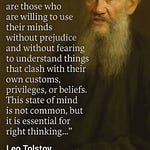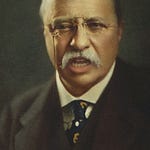Hello, I am Sinclair Lewis, a novelist and social commentator.
I once said:
“When fascism comes to America, it will be wrapped in the flag and carrying a cross.”
This statement was not a prediction of inevitability but a warning—a caution about how authoritarianism can disguise itself in the very symbols that people hold sacred. When I wrote these words, I observed the dangerous interplay of nationalism and moral absolutism. Fascism, as history has shown, often gains its foothold not through brute force but by cloaking itself in the language of patriotism and righteousness. It uses cherished symbols to appeal to emotions, to silence dissent, and to mask its true intentions: control, oppression, and the erosion of freedom.
This observation came during a time when the world had already seen the rise of authoritarian regimes in Europe. Leaders wrapped themselves in their national flags, claiming to protect their country’s traditions and values, while systematically dismantling democracy. They often invoked religion as justification for their actions, presenting themselves as moral guardians while sowing division and fear. Today, my warning feels eerily relevant. In modern America, the misuse of patriotism and faith continues to pose risks.
The symbols of the flag and the cross are powerful—they evoke unity, identity, and shared values. But when they are manipulated for political gain, they become tools of division. They are used to stoke fear of “the other,” to suppress dissent, and to justify actions that undermine democratic norms. In the digital age, these tactics are amplified. Misinformation spreads rapidly, creating echo chambers where lies are presented as truths, and where symbols are wielded to silence critical thought.










